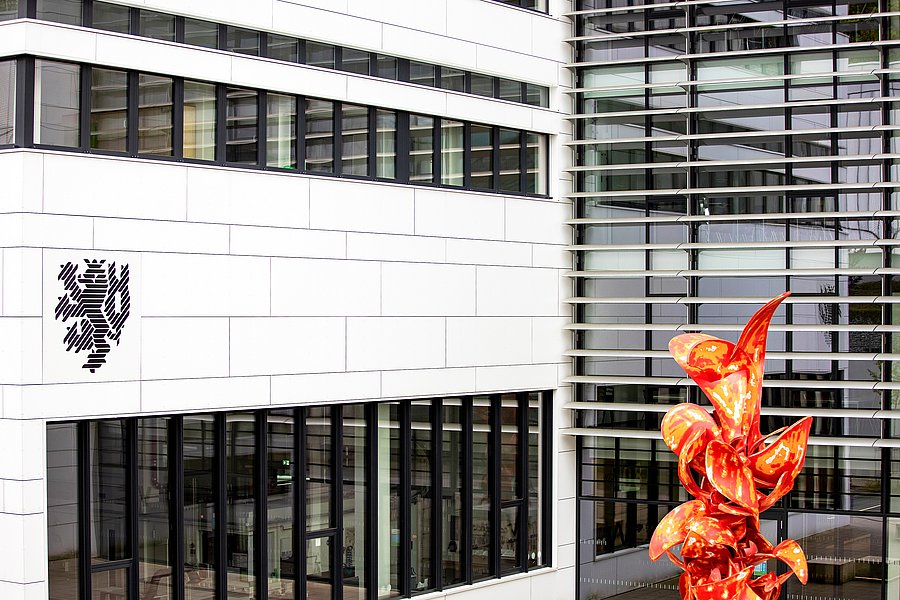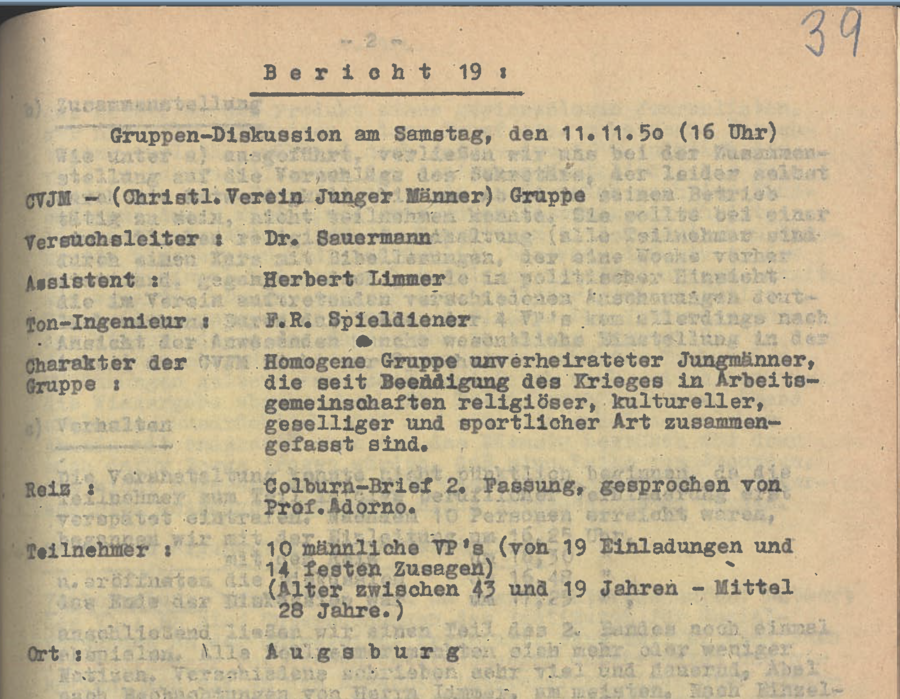DFG funding for long-term projects
"The post-Nazi society": major study from the 1950s to be made digitally accessible and researched

Photo Sebastian Jarych
The IfS "group experiment" produced unique data, analysis and publication material. However, much of this material has still not been catalogued, published or analysed. At the time, it was not only the head of the study, Theodor W. Adorno, who feared that publication of the results could lead to shocking political repercussions.

Excerpt from Protocol Volume 39 of the “Group Experiment” conducted by the Institute for Social Research (IfS), cover page of a group discussion with unmarried young men on 11 November 1950. // Photo Archive of the IfS
Initially funded by the DFG for the first phase of three years, the project "The post-Nazi society. The 'group experiment' of the Institute for Social Research: indexing, editing, research", which was initially funded by the DFG for a first phase of three years, is now set to publish and analyse the large-scale study. Sociologist Stephan Lessenich, Director of the IfS and professor at Goethe University, has been commissioned to do this together with Patrick Sahle, Professor of Digital Humanities at the University of Wuppertal, and Dr Thomas Risse, Head of IT Services at the Johann Christian Senckenberg University Library. The overall project is being coordinated by Dirk Braunstein, Head of Archives at the Institute for Social Research. An interdisciplinary International Scientific Advisory Board will closely monitor the edition and research within the framework of the project.
The project, which is scheduled to run for a total of twelve years, has two objectives: The largely unknown contents of the group experiment are to be completely transcribed and made freely accessible digitally; this will create the basis for further interdisciplinary research via an online portal. In addition, the material in the project itself will be analysed from different perspectives. The project team anticipates that the group experiment will provide significant new insights into the understanding of post-Nazi society in West Germany.
Further information: Digital Humanities at the University of Wuppertal
In the long-term project "The Post-Nazi Society", the Digital Humanities of the University of Wuppertal is responsible for the methodological and technical issues of digital cataloguing, editing and research. Building on a large number of digital research projects from various humanities disciplines (history, social sciences, linguistics), they contribute the necessary conceptual expertise and practical experience - for the modelling and curation of all research data, for efficient processing workflows, for enabling systematic research, digital publication and the sustainable operation of the portal.
The Digital Humanities (DH) form a bridge and meta-discipline between the humanities and information science as well as applied computer science. The Wuppertal Chair of DH, based in the Department of History, works on application-oriented topics such as source indexing, digitisation of cultural heritage, digital history, information visualisation as well as semantic technologies, text analysis and data standards. One focus of the research work is on cooperative projects such as digital editions, visualisation of digital transmission structures and platforms for ancient Indian text research, for example.
